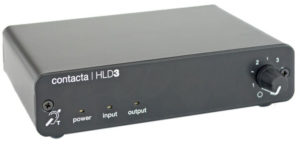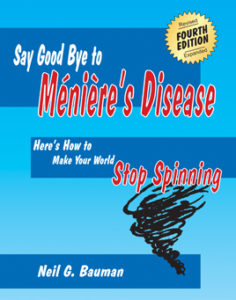by Neil Bauman, Ph.D.
A man explained,
Five years ago I suffered sudden sensorineural hearing loss in my right ear. I have a hearing aid and it offers some benefit, but I have trouble understanding conversation in a noisy environment.
Prior to the hearing loss event, I enjoyed occasionally scuba diving. While scuba diving can involve hearing risk due to ear pressure changes, I don’t believe my hearing loss was related to diving (I had not dived in the year prior to the loss). I have not gone scuba diving since the loss, because I don’t want to risk any damage to my good ear, which would have a profound effect on my quality of life.
My audiologist told me he didn’t think I needed to stop diving. My wife disagrees. What do you think?
Probably the key to answering your questions is knowing the cause of your sudden hearing loss—whether it was related to your swimming and diving, or whether, for example, it was caused by a virus.
From everything you have said, I think it points more towards a virus or something and away from the effects of swimming/diving.
The problems you have understanding conversation in noisy environments is one of the first things that people notice when they get a hearing loss in one ear. This is because it takes two properly-working ears to pick out one specific voice from background noise, or from the babble of speech at a party.
You explain,
I don’t believe my hearing loss was related to diving (I had not dived in the year prior to the loss). I have not gone scuba diving since the loss, because I don’t want to risk any damage to my good ear. My audiologist told me he didn’t think I needed to stop diving. My wife disagrees. What do you think?
Oh, oh! Now you’ve got me stuck in the middle—taking sides with either your audiologist or your wife. Actually, I’m with you and your audiologist. I wouldn’t expect diving to affect inner ear hearing (sensorineural hearing).
You further explain,
I swim every day in the ocean, and I often like to take a deep breath and swim 5-10 feet down to get a closer look at a fish or coral head. When I do this, I equalize my ears by holding my nose and gently pressurizing. I am wondering if I am risking my hearing by doing this?
Again, I wouldn’t expect this to affect inner ear hearing. It can temporarily affect conductive (middle ear) hearing because as you pressurize your ears, you are pushing your eardrum further away from the hammer (malleus). This gives you a temporary hearing loss. When you dive down the outside pressure pushes your eardrum back in which gives you more normal underwater hearing.
Furthermore, you explain,
I’ve been doing it for awhile. My hearing has been mostly stable over the past 5 years, but once, about a year ago, after swimming particularly deep, I felt a sudden fullness in my bad ear, and the fullness took a week to subside, and I noticed a decrease in hearing in my bad ear. My next visit to the audiologist confirmed a slight decrease in some frequencies. The audiologist didn’t think it was related to my skin diving. He said it is common for hearing in the bad ear to get worse over time.
The real question is, “Was the decrease in your hearing a conductive loss or sensorineural loss?” That makes a big difference.
Most people do lose high frequency hearing as they get older—so your hearing can get worse over time—but you would expect much the same loss in both ears—and that is not happening, so I don’t buy that. There is no reason for your bad ear to lose more hearing if you are careful. However, for example, if you listen to loud music or other loud sounds, your bad ear could lose hearing faster (more noticeable) than your good ear simply because it has fewer working hair cells to begin with. Thus, the percentage change would be greater than in your good ear.
Also, many drugs and medications can affect your hearing—and strangely enough—can affect one ear and not the other (which doesn’t seem right—but it happens).
I can see diving causing conductive hearing loss that would by temporary. The conductive loss could be caused by air pressure differences. Here’s why. As you dive down the increasing pressure on your eardrum does two things. First, as your ear drum is pushed in, it pushes excess air out of your middle ear and down your Eustachian tube to your throat. Second, since your eardrum is now pushed to your middle ear bones they cannot vibrate as much as before so you hear sounds softer—in other words you have a temporary conductive hearing loss. (That’s why you pressurize your ears before you dive as we discussed above. It helps you maintain more hearing.)
Now, when you come up, the pressure reduces and your eardrum goes back to its normal shape. This now creates a vacuum in your middle ear. When you yawn or swallow, your Eustachian tube opens momentarily and allows air from your throat to be sucked in and fill the vacuum and all is well again—your hearing returns to normal.
However, if you have mucous or anything else in your throat right where your Eustachian tube is, that “gunk” can get sucked into your Eustachian tube and maybe all the way up to your middle ear. This “gunk” (actually viscous fluid) also does two things. First, it prevents the free exchange of air to the middle ear so you get this feeling of pressure there. Second, it prevents the bones of your middle ear from vibrating as freely as before—thus giving you a conductive hearing loss. (Think of the difference in clapping your hands together in air, and then trying to clap them together underwater in order to understand what is happening.) Fortunately, in time, the “gunk” will drain out of your middle ears/Eustachian tubes and your hearing will return to normal again.
Finally, you ask,
That happened last year, and I’ve continued to snorkel daily and dive down 5-10 feet a few times a day. In your opinion, should I avoid diving down? Or do you think it’s fine, especially given the frequency with which I’ve been doing it without ill effect except for that one time?
I’m with you—it shouldn’t hurt your ears doing what you are doing—or even scuba diving when you want to, but I’d only do this when your head is “clear”. I wouldn’t recommend diving when you have a cold, or your ears or sinuses are otherwise congested. You don’t want to increase the chance of any mucous or “gunk” getting sucked up your Eustachian tubes.
I think you figured out much the same thing without knowing how it all happens. So, unless there is some real reason not to, continue to enjoy your swimming and diving when you feel like it. That’s how I see it.



Leave a Reply